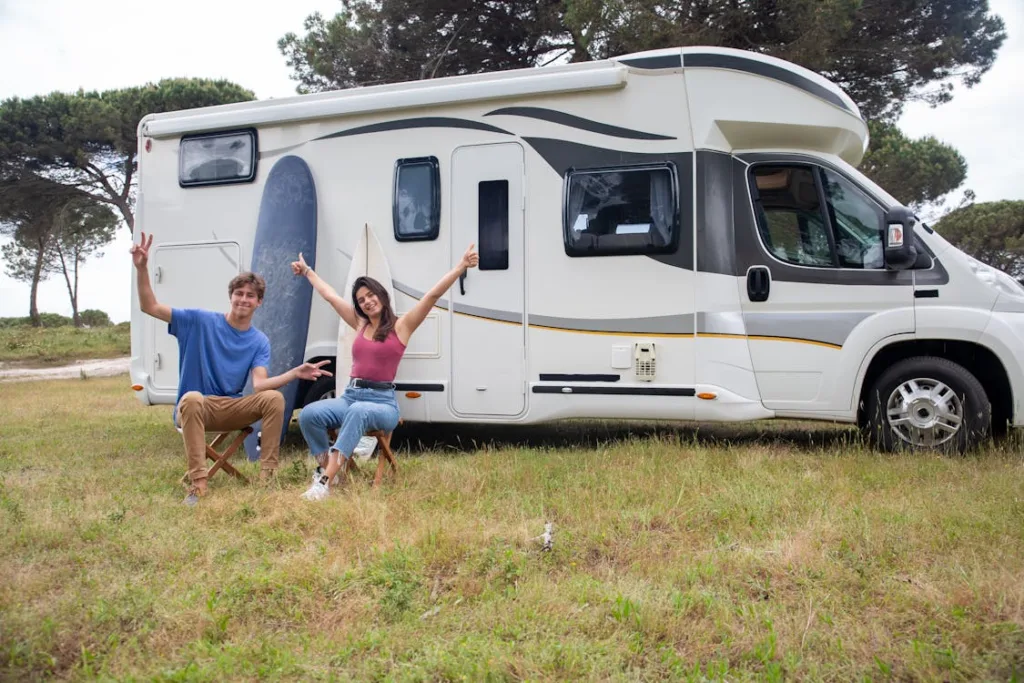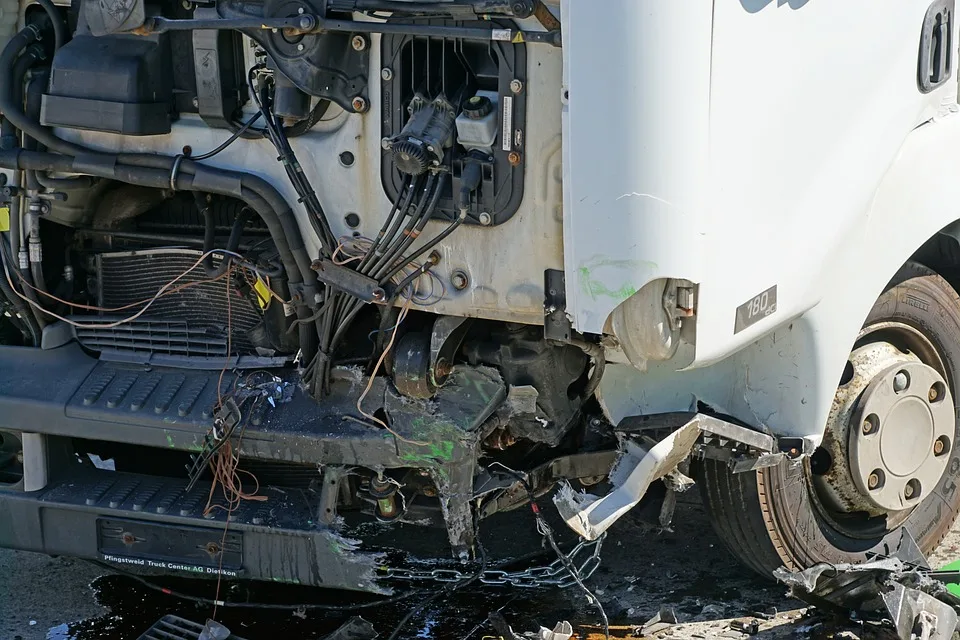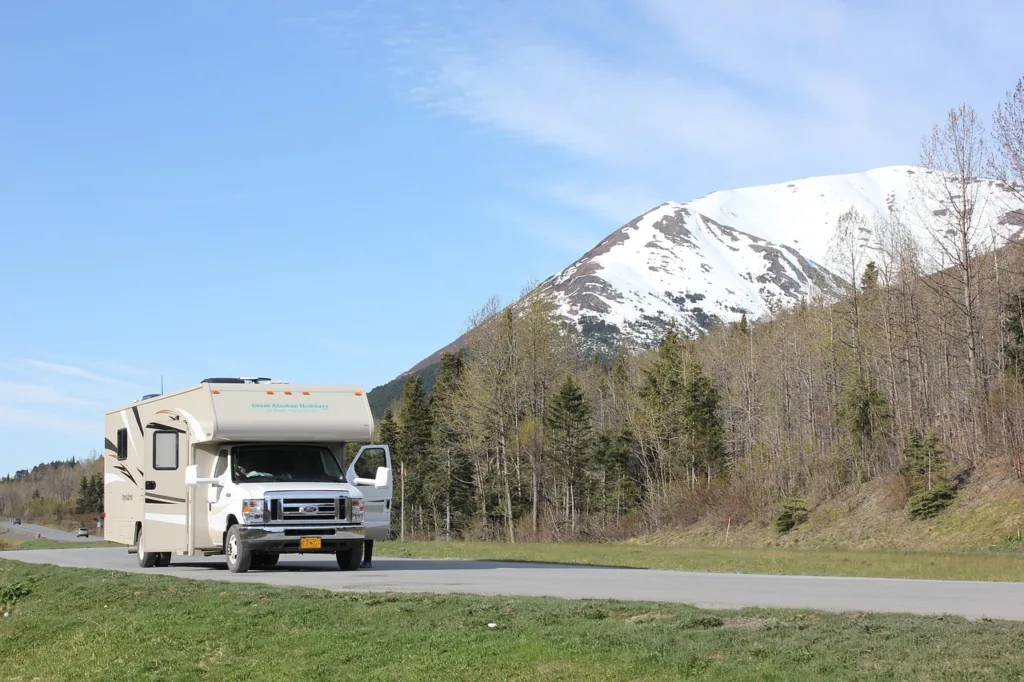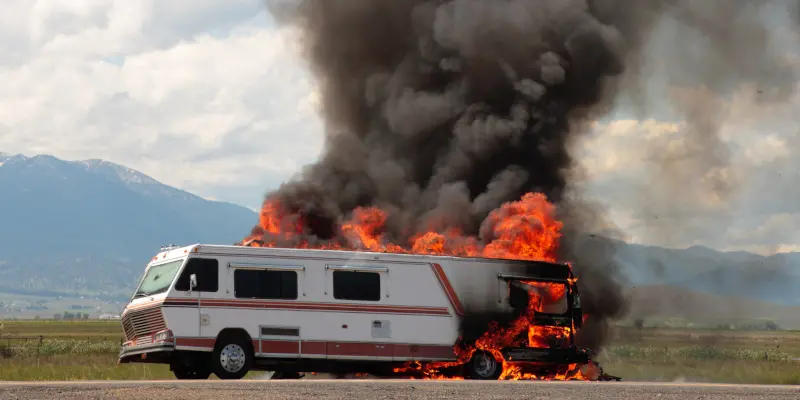
Ever wondered if you really need RV insurance? It’s not just about protecting your vehicle; it’s about peace of mind on the road. Let’s dive into why RV insurance is an absolute must for every RV owner.
1. Types of Coverage: What You Need to Know

RV insurance offers several types of coverage to fit your needs. Liability coverage protects you if you cause an accident, covering the other party’s medical and repair costs. This is essential for every RV owner.
Comprehensive coverage takes care of non-collision incidents like theft, fire, or natural disasters. It ensures you’re protected from a wide range of potential damages.
Collision coverage handles repairs to your RV if you’re in an accident, regardless of who’s at fault. Having this coverage means you can get back on the road quickly after an incident.
2. Cost Factors: What Affects Your Premiums
Several factors influence the cost of your RV insurance premiums. The type of RV you own, its age, and how often you use it all play a role in determining your rates. Full-time RVers might pay more than occasional travelers due to increased exposure to risks.
Your driving record and credit score also affect your premiums. Maintaining a clean driving record and good credit can help lower your insurance costs.
Location matters, too. Where you park your RV, whether at a secure storage facility or on the street, impacts your rates. Bundling your RV insurance with other policies, like auto or home, can also result in discounts.
3. Benefits of Insurance: More Than Just Protection

RV insurance doesn’t just protect your vehicle; it protects you financially. It covers repair costs, medical bills, and even legal fees if you’re involved in an accident. Many policies include roadside assistance, which can be a lifesaver if you break down in a remote area. This benefit alone can save you time, money, and stress on the road.
4. Common Claims: What to Expect

Accidents are among the most common RV insurance claims. Whether it’s a collision with another vehicle or a mishap while parking, accidents can result in significant damage and costly repairs. Having collision coverage ensures you can handle these situations.
Theft is another frequent claim. RVs can be attractive targets for thieves, especially when parked in unfamiliar areas. Comprehensive coverage protects you against loss due to theft, giving you peace of mind when you’re away from your RV.
Weather-related damage is also common. Hailstorms, floods, and high winds can cause severe damage to your RV. Comprehensive insurance covers these natural disasters, helping you recover quickly.
5. Roadside Assistance: Your Safety Net

Imagine being stranded on the side of the road with a flat tire or dead battery. Roadside assistance, often included in RV insurance policies, provides help when you need it most. It covers towing, tire changes, fuel delivery, and more.
You won’t believe how much peace of mind this brings. Knowing that help is just a phone call away can make your travels more enjoyable and less stressful.
6. Liability Protection: Guarding Against Lawsuits

Liability protection is a critical part of RV insurance. If you’re at fault in an accident, liability coverage helps pay for the other party’s medical expenses and property damage. This ensures you’re not left paying out-of-pocket for costly claims.
It also covers legal fees if you’re sued as a result of the accident. Legal battles can be expensive, but with liability protection, you have financial support to handle these situations.
Liability coverage isn’t just for accidents on the road. It also protects you if someone is injured while visiting your RV at a campsite. This comprehensive protection helps you travel with peace of mind.
7. Full-Timer Coverage: For Those Who Live on the Road
Full-time coverage is essential if you live in your RV year-round. This type of insurance provides additional protection beyond standard RV policies, similar to homeowner’s insurance for your RV.
It includes personal liability coverage, which protects you if someone is injured in or around your RV. This coverage helps pay for medical expenses and legal fees if you’re sued.
Emergency expense coverage is another benefit. If your RV becomes uninhabitable due to a covered loss, this coverage helps pay for temporary lodging and transportation. Full-timer coverage ensures you’re protected and comfortable no matter where you roam.
8. Vacation Liability: Protecting Your Getaway

Vacation liability coverage protects you when your RV is parked at a campsite or RV park. It covers bodily injury and property damage that occurs at your temporary home away from home.
Accidents can happen anywhere, and having this coverage ensures you’re protected during your getaway.
9. Total Loss Replacement: Peace of Mind for New RVs

Total loss replacement coverage is a game-changer for new RV owners. If your RV is totaled in an accident within the first few years, this coverage ensures you get reimbursed for the full cost of a new RV rather than the depreciated value.
This type of coverage can save you thousands of dollars and prevent financial hardship. It’s especially valuable for high-end motorhomes and new RVs, giving you peace of mind knowing you’re protected from significant loss.
By choosing total loss replacement, you can travel confidently, knowing that your investment is secure. It’s a smart addition for anyone purchasing a new RV and wanting comprehensive protection.
10. How to Choose the Best Policy: Tips and Tricks

Choosing the right RV insurance policy doesn’t have to be overwhelming.
- Start by assessing your specific needs. Consider how often you use your RV, whether you live in it full-time, and the type of RV you own.
- Compare quotes from different insurers to find the best rate. Look beyond the price and consider the coverage options each policy offers. Ensure it includes liability, comprehensive, and collision coverage, as well as any additional protections you need.
- Check the insurer’s reputation and customer service reviews. A good insurance company will handle claims efficiently and provide excellent support. Bundling your RV insurance with other policies, like auto or home, can also save you money.
- Look for discounts. Many insurers offer discounts for safe driving, RV safety features, and membership in RV clubs. Ask about these opportunities to lower your premium.
- Read the fine print. Make sure you understand the policy terms, exclusions, and limits. Knowing exactly what your policy covers will prevent surprises when you need to file a claim.
Don’t Hit the Road Without It
RV insurance is more than just a legal requirement; it’s a must-have for anyone serious about protecting their investment and enjoying the RV lifestyle. From roadside assistance to liability protection, the benefits are too significant to overlook.
So, what are you waiting for? Get the right RV insurance and hit the road with confidence. Safe travels!

